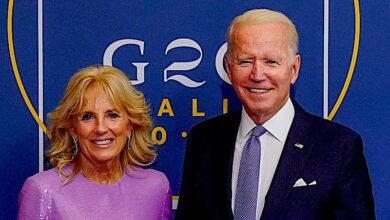New research questions benefits of public preschool
The Biden Administration’s proposed universal preschool plan may be stalled, but states and cities are pushing ahead with taxpayer-funded preschool programs of their own. Last week, Colorado became the latest state to pass a universal preschool program that also establishes a new, statewide Department of Early Childhood.
The expansion of taxpayer-funded preschool programs aimed at all young children comes even as new research shows the educational harms that these programs can have on children. Vanderbilt University researchers have been tracking the progress and outcomes of students who participated in the Tennessee Pre-K Program, a publicly-funded preschool program overseen by the state that became fully implemented in 2005.
Using a randomized control study, researchers found that, rather than improving academic outcomes, the taxpayer-funded preschool program led to worse academic outcomes for the children who participated in the program compared to the children who did not. Moreover, the negative academic outcomes became more pronounced as the years passed, and the participating students also had worse behavioral outcomes compared to the children who did not participate in the program.
“Data through sixth grade from state education records showed that the children randomly assigned to attend pre-K had lower state achievement test scores in third through sixth grades than control children, with the strongest negative effects in sixth grade,” the researchers wrote in a paper released earlier this year. “A negative effect was also found for disciplinary infractions, attendance, and receipt of special education services, with null effects on retention.”
The educational harms of taxpayer-funded preschool programs are joined by widespread economic harms. Beyond the significant dollar costs to taxpayers, the implementation of universal preschool programs raises private and church preschool costs, creates shortages, and reduces the variety of available options.
“You’re going to drive out providers, you’re going to increase costs, and you’re going to be leaving parents with the options that they don’t actually want,” Cato Institute policy analyst, Colleen Hroncich, told me in this week’s episode of the LiberatED Podcast.
In her new Cato policy analysis, Hroncich explains the effects of universal preschool programs, including the impact on private preschool providers who may be forced out of business when a “free” option emerges, or be unable to comply with the various mandates and regulations these preschool programs often require.
We’ve already seen this occur in Chicago when the city implemented its universal preschool program. As the Chicago Tribune reported last year: “Private child care owners say universal pre-K leaves many families with little choice where to send their children to preschool because cost becomes the determining factor of choosing [Chicago Public Schools] instead of private preschool, even if the private program better fits a family’s needs.”
Even the threat of universal preschool programs exacerbates existing early childhood education shortages and leads to higher costs. I wrote in February about a private Montessori-inspired preschool provider in New Hampshire who has a long waiting list for her program and would love to expand to a bigger facility, but the threat of a universal preschool program being implemented, whether at the federal, state, or local level, prevents her from growing.
Government interference in the free market, and indeed even the threat of such interference, leads to higher costs, lower supply, and lower diversity of options in early education services. As the Vanderbilt research shows, it may also lead to poorer academic and social outcomes as well. The solution is to get the government out of the early education market altogether, including through vast deregulation, rather than increasing its role and establishing more bureaucracy and bloat.
–Kerri McDonald | Senior Education Fellow at FEE and host of the weekly LiberatED podcast. She is also the author of Unschooled: Raising Curious, Well-Educated Children Outside the Conventional Classroom (Chicago Review Press, 2019), an adjunct scholar at the Cato Institute, and a regular Forbes contributor. Kerry has a B.A. in economics from Bowdoin College and an M.Ed. in education policy from Harvard University. She lives in Cambridge, Massachusetts with her husband and four children. You can sign up for her weekly newsletter on parenting and education here.








